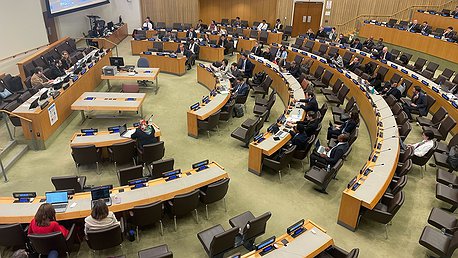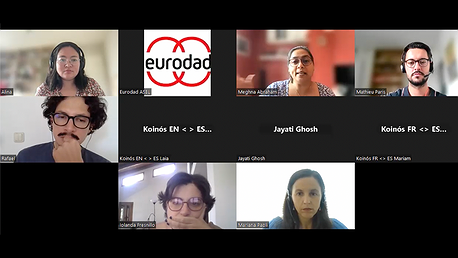Fiscal justice
Showing 31 to 60 of 184 results
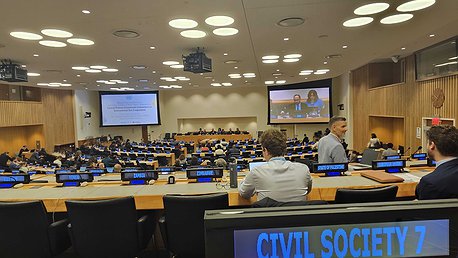
Convention Clash: A recap of week one of the UNTC Terms of Reference negotiations
Our team on the ground at the UN offices in New York is participating in the process and documenting all the latest developments: Here’s a quick day-by-day summary of the discussions dominating the first week of negotiations.

CESR's intervention: Day 2 of the 2nd round of UNTC Terms of Reference negotiations
Our Co-Director of Program, María Emilia Mamberti, took the floor at the United Nations Tax Convention negotiations to highlight the critical importance of integrating human rights into fiscal policy

G20 issues unprecedented declaration on tax cooperation ahead of final UNTC Terms of Reference negotiations
The G20 committed to cooperate to “ensure that ultra-high-net-worth individuals are effectively taxed”, and further discuss the issues in the G20 and other relevant forums.
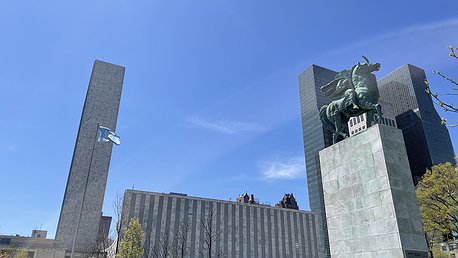
All eyes on the final round of UNTC Terms of Reference negotiations: insights from 103 submissions
We analyzed the 103 submissions following the release of the Zero Draft, analyzing the key issues at play and where different countries stand.
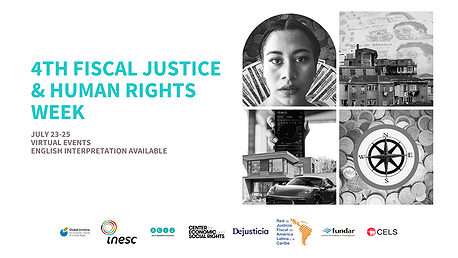
The 4th Fiscal Justice & Human Rights Week is almost here!
2024 is set to be a pivotal year for tax justice worldwide. Join allies from Latin America & the world to discuss how to make the most of the momentum towards just global taxation.
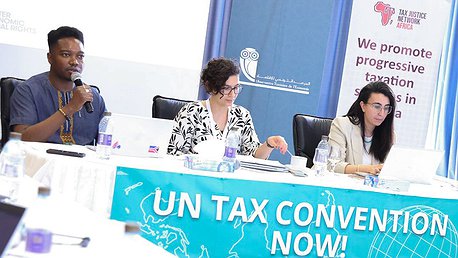
CESR joins African CSOs in rallying support for rights-based reforms to international taxation
CESR participated in a two-day workshop in Tunis on the role of African countries in defining global tax rules, hosted by the Tunisian Observatory of the Economy (OTE) and Tax Justice Network Africa (TJNA).
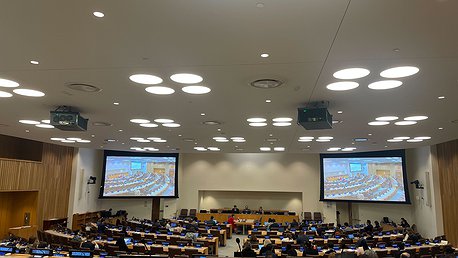
Strengthening the human rights dimension of the UNTC: CESR and allies weigh in on Terms of Reference Zero Draft
Our second submission to the UNTC’s Terms of Reference Committee, with a diverse group of allies, emphasizes the need for human rights to be explicitly integrated into the UNTC framework
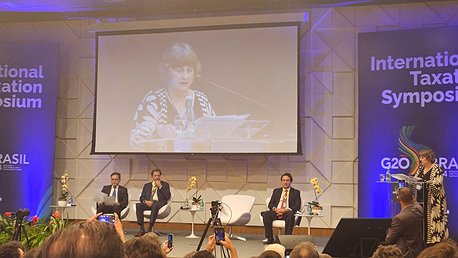
CESR and civil society allies present historic taxation recommendations to Brazil’s Finance Minister and G20 authorities
For the first time, the G20 Finance Track has directly received recommendations from civil society organizations, marking a historic moment in international tax policy discussions.
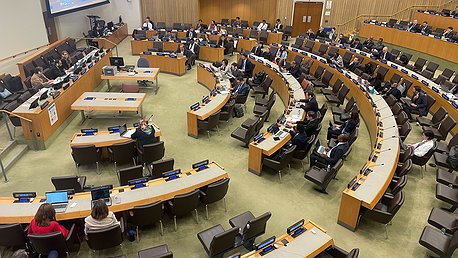
CESR's intervention at the United Nations Tax Convention Ad-Hoc Committee
CESR delivered a statement at the meeting of the Ad Hoc Committee drafting the terms of reference for a United Nations Framework Convention for International Tax Cooperation. Read our intervention here.
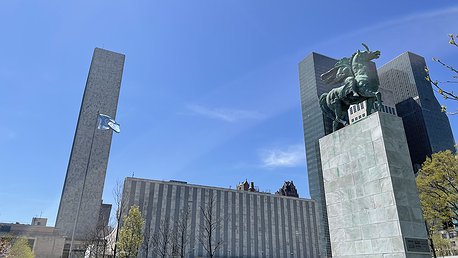
Setting the stage: an in-depth analysis of the 103 submissions to the UNTC
Here, we analyze the key demands and issues that member states and other relevant stakeholders are putting on the table.
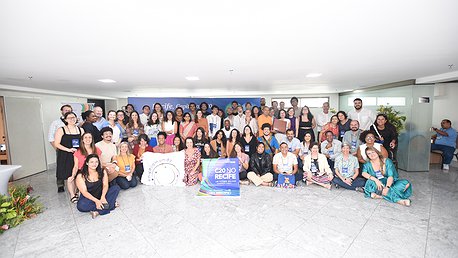
Unity in diversity: the G20 under the Brazilian presidency and the opportunity to join forces to reshape the global economy
At the heart of the recent Civil 20 (C20) inception meeting in Recife, Brazil, lies an unprecedented opportunity to champion a rights-based approach to economic policy.

Funding the fight against the climate crisis: An update on key trends in the world of climate finance
This short recap on the state of play in climate finance summarizes a few of the latest developments in the field through a reparations-based framework
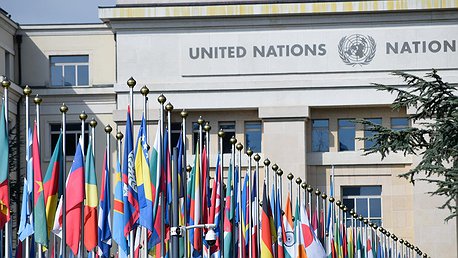
The UN framework convention on international tax cooperation is now a certainty: What can and must it address?
This month, a coalition of 30 civil society organizations led by CESR, including Oxfam and Amnesty International, submitted a proposal to the UN, advocating for a global tax treaty that prioritizes human rights. This marks a significant step in the process of establishing a unified approach to international tax cooperation through the United Nations.
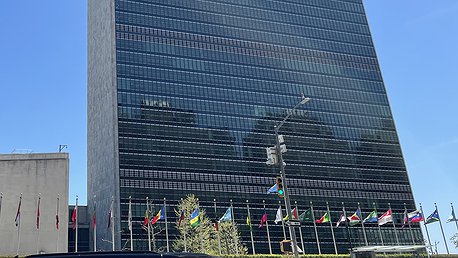
CESR and allies send submission urging human rights inclusion in UNTC terms of reference
CESR, in collaboration with a worldwide network of civil society organizations, has presented a collective submission to the Ad Hoc Committee tasked with drafting the Terms of Reference for the United Nations Framework Convention on International Tax Cooperation (UNTC).
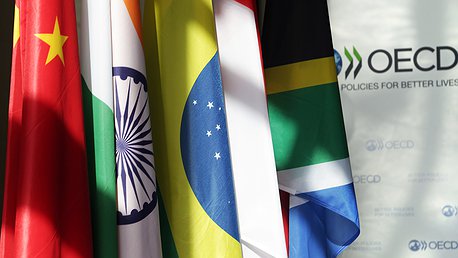
OECD’s tax deal may discriminate on the basis of gender and race - UN experts warn
Following a joint submission by CESR and allies, UN Experts have warned of the potentially discriminatory impact of the OECD’s “Two Pillar Solution”.
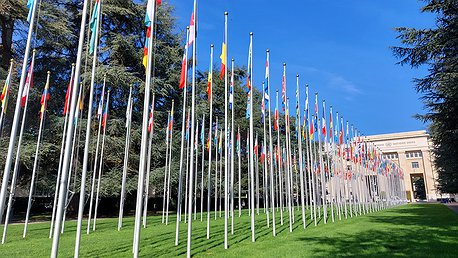
Statement: the African Group’s push to develop a UN Tax Convention requires global and cross-movement support
Nigeria tabled a draft resolution that could result in a comprehensive new treaty on international tax cooperation by 2025. Here’s why it requires support from all countries and movements.
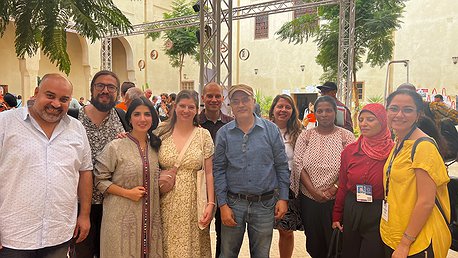
CESR at the IMF/WB 2023 Annual Meetings in Marrakesh: Pushing for Transformative Financial Reforms
Our participation aimed to spotlight the urgent need for a rights-based approach to global economic governance. Here’s a recap of the key events and discussions we were involved in.
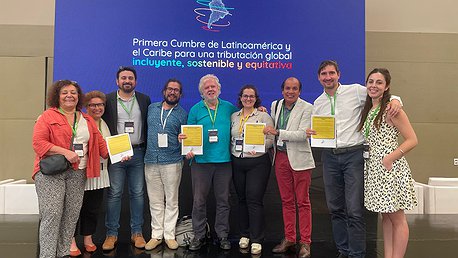
Latin America takes a historic step in recognizing human rights as the guiding framework for taxation
The first regional Summit for inclusive, equitable and sustainable taxation, led to the signing of a historic declaration to promote tax cooperation and the launching of a regional platform for that goal.
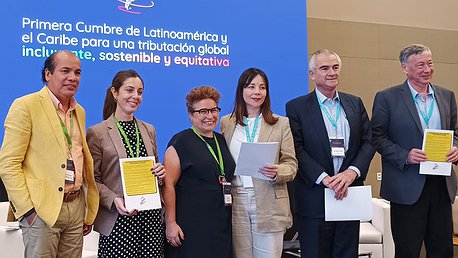
Cartagena Summit: A new platform for fiscal cooperation is born
Civil society enabled key debates about human rights in fiscal policy at the groundbreaking Cartagena Summit.
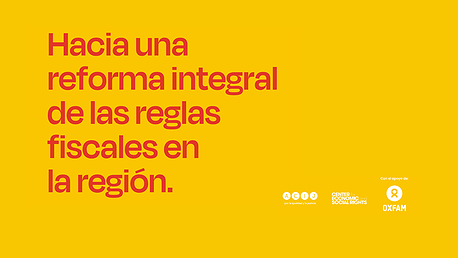
Toward comprehensive reform of fiscal rules in Latin America & the Caribbean
Publication co-authored by ACIJ and CESR which explores fiscal rules from a huma rights standpoint.
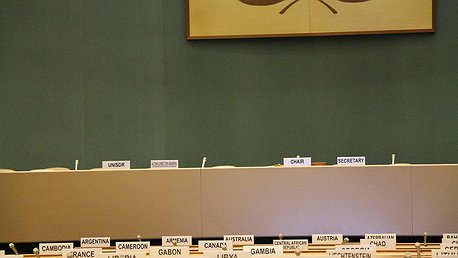
Analysis of Ongoing Consultations: Why we urgently need to join forces towards supporting a UN Tax Convention
The inputs received by the UN's Secretary General ahead of discussing a UN Tax Convention show how urgent it is to join forces to make the instrument happen.
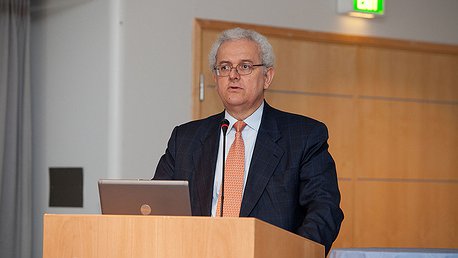
A golden opportunity for fiscal justice: CESR welcomes Colombia’s announcement of Latin America’s first global tax summit
We welcome Colombia's announcement of the first ever Ministerial tax summit for the Latin American and Caribbean region.

Taking a critical look at the OECD Global Tax Agreement through a human rights lens
CESR participated in a two-day workshop in Tunis on the OECD’s Global Tax Agreement, hosted by the Tunisian Observatory of the Economy and Tax Justice Network Africa.

CESR and partners call for an end to unfair tax exemptions in Argentina
A statement signed by 17 organizations asks Congress to change tax exemptions.
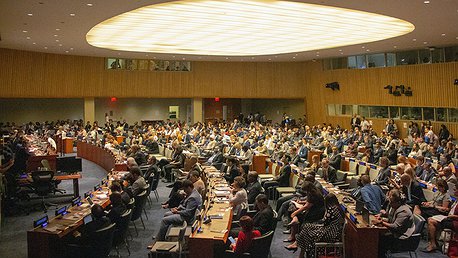
Call to Chile and Colombia to promote a new fiscal pact for Latin America and the Caribbean
In this joint statement, CESR and allies call on the governments of Chile and Colombia to lead the way towards fiscal justice in Latin America and the Caribbean.

Report: Fiscal Policy and Racial Justice in Latin America
In partnership with ILEX, we analyze the role of fiscal policies in addressing the multiple inequalities that affect Afro populations in Latin America.
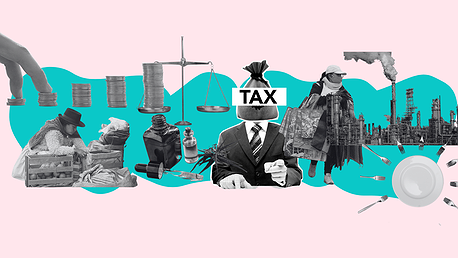
Join the 2nd Fiscal Justice & Human Rights Week!
Dialogues and workshops on taxes, budgets, and their links to human rights will take place on August 1-8 at the event series co-organized by CESR and allies.

